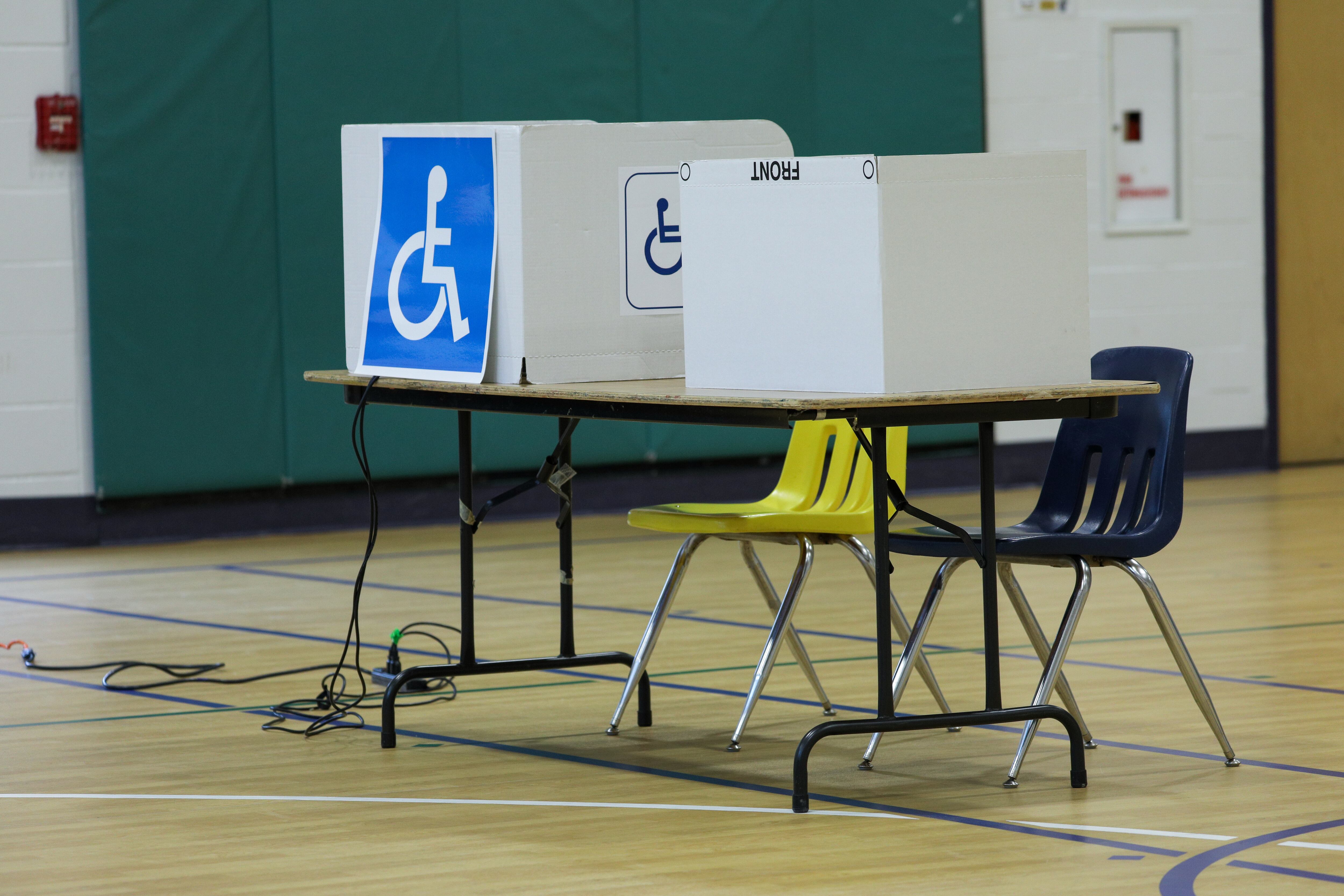Votebeat is a nonprofit news organization reporting on voting access and election administration across the U.S. Sign up for Votebeat Wisconsin’s free newsletter here.
Two months ago, Don Natzke planned to be among the first Wisconsin voters with disabilities in recent years to receive and mark a ballot electronically. That plan followed years of lobbying by disability rights advocates, litigation, and a favorable court ruling allowing some voters like Natzke, who’s blind, to vote electronically at home using an emailed ballot for the November election.
Last month, though, an appeals court ruling disrupted his plan, prompting a renewed fight by Natzke and others seeking expanded voting options for people with disabilities — this time in the Wisconsin Supreme Court — for the access they thought they had already won.
As the legal fight drags on, it now appears highly unlikely Natzke and other voters with disabilities will have the electronic ballot access they’re seeking in time for the November election.
Natzke said he’ll almost certainly vote anyway, though it’ll be in person.
“I think it just adds an unnecessary difficulty,” he said. “I would have hoped that we would have had a clear and decisive decision to support voters with disabilities by this election, but unfortunately, it appears we need to wait.”
In April, Natzke was among several plaintiffs who, along with Disability Rights Wisconsin and the League of Women Voters of Wisconsin, sued the Wisconsin Elections Commission for the option to receive, mark, and return ballots electronically. Many of the plaintiffs have had to sit out elections because of hurdles that keep some of them from voting in person and that make absentee voting in private challenging or virtually impossible.
To mark a paper absentee ballot, the plaintiffs have to rely on someone to help them, which they say violates their right to a secret ballot under the Wisconsin Constitution.
In June, a Dane County judge gave them a partial victory, ruling that some voters with disabilities should be able to receive and mark their ballots electronically at home in the November election, but that they would have to print and return their completed ballot in person or by mail.
The order applied to voters who couldn’t independently read or mark a paper ballot, either because of a physical disability or being low vision or blind. That ruling put the Wisconsin Elections Commission on a tight timeline to implement electronic voting technology, which they said could take months.
The Republican-controlled Legislature appealed that decision to a court based in Waukesha County. Days later, the elections commission filed a separate appeal opposing the Legislature’s intervention, on the grounds that the commission, not the Legislature, was responsible for carrying out elections. That appeal is ongoing.
In mid-August, with the commission’s appeal unresolved, the Waukesha appeals court ruled in favor of the Legislature and issued a stay on the Dane County court’s ruling.
The plaintiffs’ objectives to vote privately and independently are important, the ruling stated, but the confusion to clerks and voters caused by implementing the technology ahead of November “runs a substantial risk of doing more harm than good, even for print-disabled voters.”
Following that ruling, the elections commission told clerks not to send electronic voters to people with a print disability.
Then, on Sept. 13, the plaintiffs asked the Wisconsin Supreme Court to hear the case directly. They’re asking the court to weigh in on several issues, including whether the Dane County judge was right to issue the initial order and whether the Legislature should have been able to ask for a stay of the lower court ruling.
“We’re in this really complicated procedural mess,” said Erin Deeley, who’s representing the plaintiffs. “It’s slowing down the case.”
It’s highly unlikely that the original judge in Dane County will be able to begin deliberating on the plaintiffs’ ultimate request — the right to electronic ballot delivery, marking, and return — before the November election, Deeley said.
Some other states, including Vermont, Michigan, Maryland, and Pennsylvania, allow voters with disabilities to fill out ballots electronically, though depending on the jurisdiction, the voters may have to print and return them by mail, drop box or in person.
Cybersecurity experts have raised concerns over electronic ballot return, saying technology isn’t advanced enough to ensure its safety, but advocates for people with disabilities have said that risk has to be squared with the risk of disenfranchising voters or violating their ballot secrecy rights if electronic return isn’t granted.
The Wisconsin Elections Commission and an attorney for the Legislature didn’t respond to requests for comment.
“I wish I could say that I was surprised by the delays, but unfortunately I am not,” said Stacy Ellingen, another plaintiff, who has athetoid cerebral palsy and doesn’t have the fine motor skills to fill out a paper ballot by herself.
Ellingen said that she will still vote absentee in the November election, but that it will be more challenging because she’ll have to rely on her parents, who live 45 minutes away, for help casting a ballot.
Still, she appeared ready for the legal fight ahead.
“It may take longer than we originally hoped,” she said, “but we’re not going to give up.”
Alexander Shur is a reporter for Votebeat based in Wisconsin. Contact Alexander at ashur@votebeat.org.






